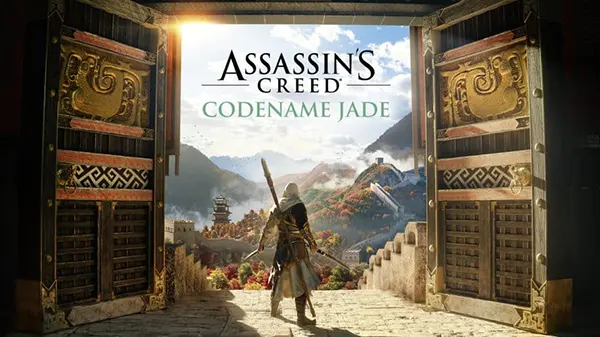
Fire Emblem Shadows on Mobile: Social Deduction Replaces Tactical Strategy
The Fire Emblem series has long been synonymous with tactical combat and intricate character development. However, in 2025, Nintendo’s latest adaptation — Fire Emblem Shadows Mobile — introduces a bold departure from tradition. Instead of grid-based warfare, players now engage in a psychological battle of trust, deception, and deduction. This shift aims to revitalise the franchise for mobile audiences seeking interactive storytelling and social strategy rather than repetitive combat mechanics.
The Evolution of Fire Emblem for the Mobile Generation
Since its inception in 1990, Fire Emblem has captivated fans with strategic gameplay and emotional narratives. Yet, the franchise has faced challenges adapting to the quick, on-the-go nature of mobile gaming. Fire Emblem Shadows Mobile resolves this by focusing on shorter, dialogue-driven sessions that prioritise decision-making and social interaction. Players no longer command armies but navigate complex alliances within a mysterious community.
This transformation reflects a growing demand for narrative immersion in mobile titles. Games like Among Us and Town of Salem demonstrated that players enjoy logic-based interaction over mechanical repetition. Nintendo recognised this and crafted a Fire Emblem experience that leans into social psychology while maintaining the lore and world-building the series is known for.
Set within a kingdom plagued by betrayal, every session becomes a test of intuition. Players must uncover hidden traitors while managing relationships that directly influence the story’s outcome. Each decision not only alters trust between characters but also impacts access to resources, secrets, and endings.
Gameplay Mechanics and Social Dynamics
The mobile version introduces “truth rounds,” a new feature where players discuss recent actions and accuse potential deceivers. Unlike turn-based combat, victory depends on communication, observation, and persuasion. This innovation transforms Fire Emblem from a war simulator into a social theatre of suspicion and strategy.
Character classes have been reinterpreted to fit the new system. For example, a former “Mage” might now possess insight abilities that reveal partial truths, while “Knights” can protect allies from false accusations. Such reimagining allows traditional fans to recognise familiar roles while adapting them to a deduction-based structure.
Fire Emblem Shadows also supports asynchronous play, enabling users to participate in matches across different time zones without losing progression. This approach caters to mobile users’ habits, where flexibility and engagement matter more than real-time commitment.
Visual Design and Atmospheric Storytelling
Fire Emblem Shadows retains the franchise’s celebrated anime-inspired art but employs a darker tone suited for intrigue and deception. The visual direction uses subtle lighting, muted colour palettes, and expressive animations to enhance tension during interactions. Every glance, pause, or gesture is deliberate, signalling potential dishonesty or alliance.
Voice acting has been expanded significantly. Each character conveys unique emotional nuance, which aids in reading intentions and identifying falsehoods. Combined with adaptive music that shifts based on player choices, the overall presentation amplifies the sensation of uncertainty and consequence.
The storyline progresses dynamically through “trust chapters,” where past decisions directly affect dialogue outcomes. For example, a character once betrayed might withhold crucial information later. This branching narrative design increases replay value and encourages exploration of alternative moral paths.
Community Integration and Competitive Modes
Recognising the modern emphasis on social connectivity, Fire Emblem Shadows introduces cooperative and competitive lobbies. Players can either collaborate to expose a shared enemy or deceive each other in ranked sessions. Each season rewards strategic communication and psychological acumen rather than reaction time or combat prowess.
Leaderboards measure accuracy in deduction, alliance management, and integrity preservation. Such metrics redefine how success is valued in Fire Emblem, turning honesty and manipulation into measurable skills. This departure aligns with Nintendo’s effort to innovate beyond combat-centric progression.
Moreover, the inclusion of cross-platform friend codes ensures that even casual players can engage in ongoing campaigns. The game’s design philosophy prioritises social inclusion and fairness, eliminating pay-to-win mechanics often seen in mobile adaptations.

The Future of Tactical Storytelling on Mobile
Fire Emblem Shadows symbolises a turning point for both Nintendo and mobile storytelling. By exchanging physical tactics for mental ones, it broadens the definition of what strategy games can represent in the mobile era. This reinvention demonstrates that depth can emerge from dialogue as much as from battle formations.
Early feedback from beta players in 2025 highlights the game’s emotional weight and replayability. Many appreciate how the system encourages empathy, negotiation, and moral reflection rather than simple victory. It transforms every session into a study of human behaviour under pressure.
Ultimately, Fire Emblem Shadows could influence how narrative-driven franchises adapt for handheld audiences. It proves that even a beloved tactical series can thrive when it dares to reimagine its foundation — replacing swords and shields with suspicion and trust.
Why This Reinvention Matters
This release underscores Nintendo’s willingness to innovate responsibly. Rather than following market trends blindly, the developers studied player psychology and reshaped Fire Emblem into a socially relevant experience. It retains emotional resonance while embracing modern interaction models.
The emphasis on deduction over destruction appeals to players who value mental challenge and character depth. It redefines what “tactics” mean, proving that communication can be as strategic as combat. This concept could inspire similar experiments across the mobile gaming landscape.
In the end, Fire Emblem Shadows Mobile isn’t merely an adaptation — it’s an evolution. It reflects the industry’s shift towards empathy, intellect, and genuine connection among players. By merging narrative and social deduction, Nintendo has crafted one of 2025’s most intriguing mobile experiments.
Game Bestsellers
-
 Call of Duty: Warzone Mobile Performance Analysis Across Modern Dev...
Call of Duty: Warzone Mobile Performance Analysis Across Modern Dev...Call of Duty: Warzone Mobile has become one of the …
-
 Squid Game: Unleashed — A Mobile Battle-Royale Inspired by the Hit ...
Squid Game: Unleashed — A Mobile Battle-Royale Inspired by the Hit ...Squid Game: Unleashed is one of the most anticipated mobile …
-
 Assassin’s Creed Jade — A New Chapter in the Assassin’s Universe
Assassin’s Creed Jade — A New Chapter in the Assassin’s UniverseAssassin’s Creed Jade marks an important step for Ubisoft as …
